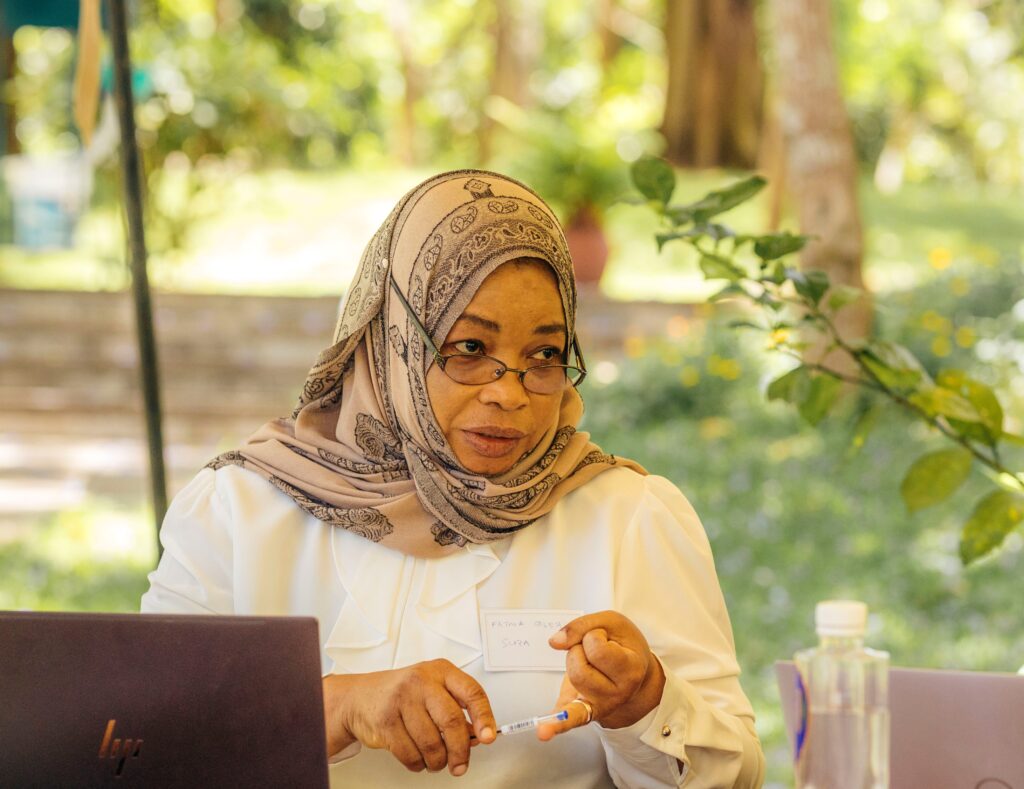Unleashing the potential of young researchers at the State University of Zanzibar. A BSU story of change
12-01-24

RESUME. A strong partnership builds on a culture of trust and commitment, a sense of ownership and mutual respect, transparency and open discussion, respect diversity and constructive criticism. Such is the BSU partnership between the consortium of Danish Universities and the State University of Zanzibar that is about to enter its fourth phase. Young researchers were involved from the outset of the partnership; in what has proven to be a visionary strategy, as they are now seasoned academics setting the agenda for the next phase and beyond. Sharing is caring; this story provides indisputable evidence that strong partnerships and collaborations have the power to transform young inexperienced researchers, such as myself, into highly productive ‘grown-ups’. Being energetic and eager to learn, young researchers are vital for assuring the successful implementation of research projects.
By Dr Fatma Saleh (PhD) Lecturer, State University of Zanzibar
This story begins back in 2010 when a team of Danish researchers from the University of Copenhagen (UCPH) visited Zanzibar. They had come to initiate a collaboration with the State University of Zanzibar (SUZA) under the flagship programme “Building Stronger Universities” (BSU) funded by the Danish Ministry of Foreign Affairs. The BSU programme aimed to strengthen the academic and research capacity of southern universities through knowledge sharing and technology transfer within North-South-South collaborations.
SUZA is a publicly owned university located in the southern region of Unguja Island within the Zanzibar archipelago, about 40 km off the eastern coast of Tanzania’s mainland. Zanzibar is a beautiful island with long stretches of shiny white sandy beaches and a tropical climate that makes it one of the most attractive tourist destinations in the world. Thanks to SUZA, Zanzibar is also becoming a hub for international education and research activities, attracting collaborators and donors from near and far.
When Prof. Flemming Konradsen and his UCPH team first came to SUZA, many of us were skeptical. We wondered whether a fruitful, sustainable, and win-win collaboration was possible considering the gaps in technical know-how and research capacity between the two parties, not to mention the substantial cultural differences. Most of us were young and had very limited if any, research experience and international exposure.
Nevertheless, an open and amicable dialogue was initiated with Prof. Flemming leading the Danish team and Prof. Mwevura leading the SUZA team. Through careful deliberations involving both senior and junior researchers, such as myself, we identified and agreed upon priority areas for collaboration. This marked the birth of BSU Phase 1 in 2011. The two main thematic areas were the Environmental Public Health (EPH) and marine and coastal ecosystem health and services, areas that reflected key societal needs as stipulated in the Zanzibar national priority frameworks.
BSU phase 1 and 2 was characterised by capacity building initiatives including training on research methodologies and small-scale collaborative research studies. These initiatives unleashed our aspirations for further collaborative research. They also triggered our confidence in collaborating with international partners with the result that, after more than a decade and three phases of the BSU partnership, the once young researchers are now leading academics at SUZA. It is now we, who are setting the agenda for phase 4, the next phase of the BSU programme!
Each of the completed BSU phases has centred around collaborative partnerships between researchers at SUZA and the Danish partner institutions, actively engaging both young and senior SUZA-staff. Research projects ranging from small pilots to large-scale, applied research studies have been jointly designed and implemented. Research articles have been published in peer-reviewed journals, and our research findings disseminated to communities and other relevant stakeholders. The collaborative approach throughout the research process has substantially strengthened the research capacity at SUZA, especially that of the younger researchers.
One of the most notable achievements of the partnership is how BSU research findings, have informed several successful grant applications. Together, SUZA EPH staff and UCPH partners have obtained external funding for new research projects focused on key environmental health challenges including the environmental sustainability of hotels in Zanzibar (EnSuZa), predicting vector-borne disease epidemics in Zanzibar and mainland Tanzania (PreVBD), and the prevention of vector-borne viral epidemics in hospital settings of Zanzibar (MBD-Free).
SUZA research staff now feel confident enough to embark on advanced intervention projects as planned for the BSU phase 4 programme. Intervention research marks the next rung on the research ladder, allowing SUZA researchers to test and implement appropriate solutions to some of the many societal problems outlined in previous BSU research.
The key principles and values that make this partnership successful include a culture of mutual trust and commitment, a sense of ownership and partnership, transparency, and open discussion, respecting diversity, and constructive criticism. These principles have guided the discussions and other activities between and among partners throughout. Diverging ideas and viewpoints have been respected and amicably clarified and, most notably, everyone has had a chance to contribute – not least the young researchers at SUZA. As we all have got to know each other we have developed a sense of friendship and trust, and this has been instrumental in shaping power relations amongst the partners and in creating a sense of shared ownership and belonging.
Sharing is caring; this story provides indisputable evidence that strong partnerships and collaborations have the power to transform young inexperienced researchers, such as myself, into highly productive ‘grown-ups’. Being energetic and eager to learn, young researchers are vital for assuring the successful implementation of research projects.
Edited by Kate Girvan
Go back to our stories